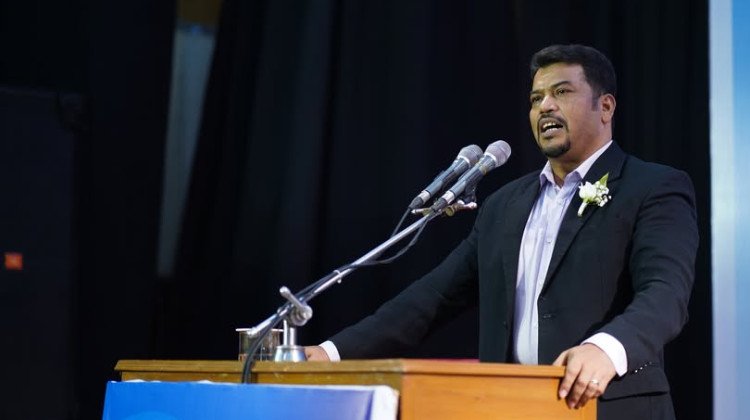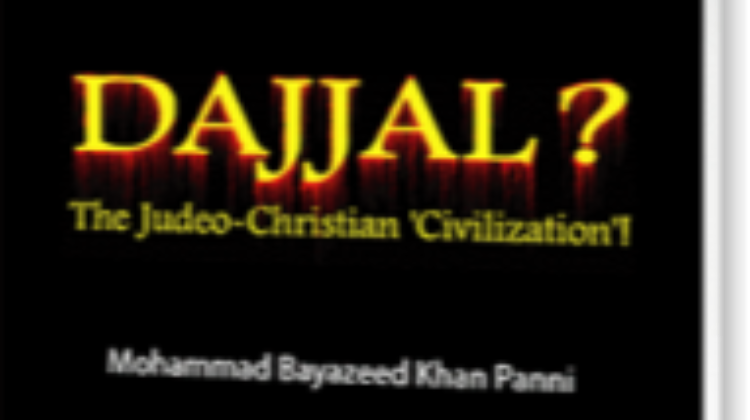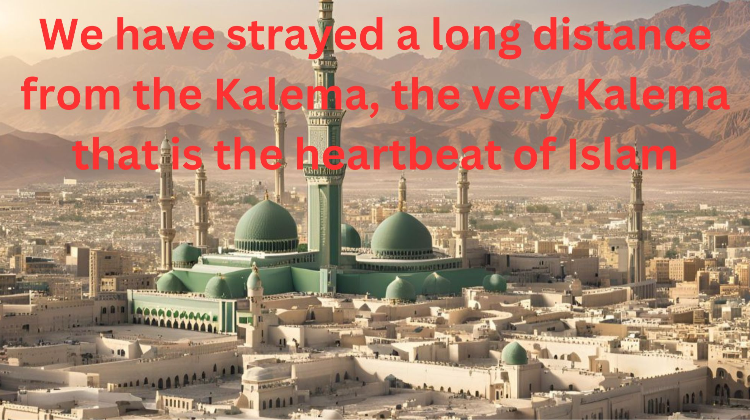How Islam Transformed the Arabs: The Only Path to True Liberation
Category :
Islamic Civilization

Author ::
Salzar Rahman Sabu
Feb 27, 2026
visibility
718 Read
Democracy has failed to bring liberation to our people. Neither socialism nor any other political ideology has succeeded. There is only one path that guarantees solutions to all human problems: implementing the divine system given by Allah.
At Hezbut Tawheed, we firmly state that the eternal, flawless, and error-free system given by the Creator is the only path to solving humanity’s crisis in every sphere. In today’s world—where democracy, republics, socialism, monarchies, and emirates have all proved inadequate—we aim to present some evidence of how successful Islam has been as a complete system. It is up to the reader to assess the relevance of Islam after reading this article.
Establishing National Unity:
Before the advent of Islam, Arab society was plagued by chaos. The time is known as “Ayyam al-Jahiliyyah”—the Age of Ignorance. Arabs were deeply divided into tribes that constantly fought and shed blood.
Much like today’s divisions along political, ideological, and sectarian lines, pre-Islamic Arabs were also fractured and hostile toward each other. Tribal feuds lasted for generations, with revenge passed down like an inheritance.
Then came Islam, erasing all divisions and forging a single identity: “We are all the creation of Allah. We are all humans. We are brothers.” The Arabs united under the declaration “La ilaha illallah”—No law except Allah’s law. A once-fragmented tribal society became a powerful and united nation.
We believe that today too, all ideological and sectarian divisions can be erased if we unite under that same declaration. No other ideology can unify our broken society the way this can.
Eradicating Poverty and Establishing Economic Justice:
Arabs were once a starving and impoverished people. Their faces and clothes reflected hunger and poverty.
But when Islam was established, and Allah’s economic system was implemented, massive changes followed. Islam outlawed interest (riba) and encouraged the rich to give the poor their due. Charity and zakat were made compulsory.
In just about a decade, economic disparity disappeared. Wealthy people roamed around with zakat in hand, unable to find anyone poor enough to accept it.
This is not a claim—it’s a historical fact. During Caliph Umar ibn Abdul Aziz’s reign, such a situation occurred. No other system in history has ever eliminated inequality so effectively.
Good Governance:
An example of justice under Islamic rule is found during Caliph Umar’s time. Amr ibn al-As (RA) was the governor of Egypt. One day, a non-Muslim Egyptian traveled to Medina to complain to Caliph Umar that Amr’s son had wronged him. After investigating, the son was found guilty.
Caliph Umar ordered that the man strike Amr’s son in public. Afterward, Caliph Umar shocked everyone by asking the man to strike Amr himself, as it was his position of power that gave his son the courage to oppress. Though the man declined, the principle stood clear: no one is above justice.
Even non-Muslims were protected under Islamic justice. As Caliph Umar famously said: “Even if a dog dies of hunger on the banks of the Euphrates, I, Umar, will be answerable to Allah.”
Transformation in Military Strength:
Before Islam, Arabs were militarily backward. They feared the mighty Roman and Persian empires. But Islam transformed them. The rise of military leaders like Ali (RA), Khalid ibn Walid (RA), and others turned the tide.
Within a decade, the Arabs—who once feared Rome and Persia—defeated both and established an Islamic caliphate across half the known world. This wasn’t for conquest or wealth, but for a principle—a vision—that made the weak mighty.
Advancement in Knowledge and Science:
At the time of the Prophet (SAW), only about 40 of his companions were literate. Arabs were generally considered illiterate and superstitious. But Islam inspired them to seek knowledge. When Europe was in its Dark Ages, Muslim lands became centers of science and learning.
A simple Google or Wikipedia search for “List of Medieval Islamic Scientists” will reveal hundreds of names across fields like astronomy, biology, psychology, chemistry, economics, geology, mathematics, physics, medicine, and philosophy.
No other civilization could rival this contribution. After the Mongol invasion of Baghdad, even the few surviving manuscripts influenced European Enlightenment. Baghdad, once mocked as the land of illiterate Bedouins, became the knowledge capital of the world.
Establishing Women’s Rights:
Those who claim Islam is an obstacle to women's rights are mistaken. Pre-Islamic Arabia had no rights for women. Daughters were buried alive. Women had no family or societal status. Islam pulled them from those graves and gave them full citizenship.
Women attended mosques, prayed alongside men, managed markets and hospitals, and even went to war. No woman was denied responsibility just for being a woman. Compare that with the West—women in England didn’t get equal voting rights until 1928!
Judicial Independence:
A famous example: Caliph Ali (RA) found his lost armor being sold by a Jewish man in Kufa. Ali took the case to the judge. The judge asked for evidence. Ali presented his son and servant as witnesses.
The judge ruled their testimony inadmissible due to a conflict of interest and returned the armor to the Jew. The man was so moved by the fairness of the judgment that he admitted the truth and accepted Islam on the spot.
Such was the impartiality and independence of Islamic justice—even the Caliph could not influence a judge.
Accountability of Rulers and Corruption-Free Governance:
Once, Caliph Umar distributed fabric from the treasury. Everyone got one piece. But on Friday, Umar appeared wearing a larger garment.
A man stood up and questioned this publicly. Umar’s son, Abdullah, explained that he had donated his share to his father due to Umar’s inability to afford new clothes. Only after this explanation was Umar allowed to give his sermon.
Even a ruler of half the world had to account for a single piece of extra cloth. Such was the transparency of Islamic governance.
Conclusion:
Islamic rule ensured justice, equality, freedom of expression, rights for all professions, and a system of governance unmatched by any ideology.
In contrast, modern systems like democracy or socialism mostly succeed in books or talk shows, not reality. Ironically, those same failed systems are repeatedly presented as solutions while Islam is dismissed as outdated.
We believe that in today’s broken world, it’s time to reevaluate the relevance and applicability of Islam in building a prosperous, dynamic, and just society.
Images Related to this Post
Related Post
Search
Popular Post
Recent Post
Tags
Hezbut_Tawheed
Imam Hossain Mohammad Salim
Bangladesh Violence
Religious Extremism
Mob Attacks
Human Rights Violations
Minority Persecution
Rangpur Attacks
Jamaat-E-Islami
Hefazat-E-Islam
Tawheed
Muslim Ummah
Islamic Unity
Shirk
Kufr
Islamic Revival
Kalima-E-Tawheed
Obedience To Allah
Deen-Ul-Haq
Hizb-Ut-Tawheed
Ram Temple
Third Temple
Ayodhya
Jerusalem
Religious Politics
Babri Masjid
Al-Aqsa
Zionism
Hindutva
Netanyahu
Religious Hate
Muslim Unity
Noakhali Conference
Imam Salim
Islamic Movement
Shahidi Jame Mosque
Ht Members Conference
Bangladesh Religious Persecution
Islamic Reform Movement
Extremist Violence
Human Rights Bangladesh
Sonaimuri Noakhali Attack
Political Extremism Bangladesh
Faith-Based Violence
Eid Al‑Fitr
Zakat Al‑Fitr
Ramadan Charity
Islamic Social Justice
Community Harmony
Bangladesh Poverty
Islamic Economy
Sadaqah
Fitrana
Eid Unity
Arab History
Islamic Governance
Caliph Umar
Social Transformation
Women’s Rights In Islam
Justice In Islam
Political Systems
Islam Vs Democracy
Islam And Knowledge
Islamic System
Prophet Muhammad
Farewell Sermon
Hajj
Global Peace
Human Rights In Islam
Dhul-Hijjah
Arafat Sermon
Islam Vs Un Charter
Unemployment In Bangladesh
Education System Failure
Educated Unemployment
Jobless Graduates
British Education Legacy
Youth Crisis
Hezbut Tawheed Views
Bids Report
Ssc To Masters Job Race
Middle Class Dilemma
Kerani Mentality
Excessiveness In Religion
Religious Distortion
Overinterpretation Of Islam
Misguided Enthusiasm
Warnings Of The Prophet
True Islam
Spiritual Clarity
Abandoning The Mission
Chormonai Pir
Desherpotro
Islamic Reform
Persecution In Bangladesh
Religious Violence
Jamaat-E-Islami Attacks
Islamic Truth Movement
Women And Knowledge
Islamic Feminism
Gender Roles
Social Awareness
Muslim Women
Female Empowerment
Islamic History
Qur’anic Guidelines
Obeying Allah’s Commands
Islam And Suffering
Workers' Rights In Islam
Labor Justice
May Day Islam
Islamic Society Model
Chashirhat Development
Imam Hossain Mohammad Selim
Islamic Brotherhood
Fair Wages
Islamic Military Strategy
Tawheed-Based State
National Security
Qur’anic Warfare
Mujahideen
Peacekeeping
Modern Islamic Army
Military Training
Ummah Defense
Sharia Governance
Southasia
Extremism
Bangladesh
India
Pakistan
Myanmar
Jihad
Islamophobia
Radicalism
Resistance
Conflict
War
Terrorism
Proxywar
Bjp
Hasina
Ghazwa
Kashmir
Rohingya
Arsa
Militancy
Ideology
Unity
Awareness
Injustice
Arms
Geopolitics
Gaza
Hypocrisy
Taliban
Alqaeda
Afghanistan
Syria
Iraq
America
China
Russia
Media
Violence
Oppression
Nationalism
Muslim
Islam
Justice
Youth
Leadership
Sovereignty
Hezbuttawheed
Mosque
Governance
Society
Administration
Education
Military
Economy
Women
Culture
Law
Quran
Hadith
Prayer
Madinah
Baytalmal
Amir
Discipline
Khutba
Transparency
Spirituality
Training
Morality
Ummah
Prophet
Sharia
Community
Peace
Development
Security
National
Khutbah
Sabr
Zakat
Sufism
Equality
Mosquesystem
Participation
Aqiqah
Accountability
Tradition
Modernity
Ummati Muhammad
Unity In Islam
Sunnah
Islamic Teachings
Muslim World
Deen Of Islam
Security Crisis
National Unity
Political Unrest
Military Vulnerabilities
Strength
Solidarity
Disunity
Muslim Nations
Women's Rights
Rufaidah Panni
Eid Congregation
Islamic Women Empowerment
Social Justice
Equality In Islam
Momen
Kafir
Mushrik
Allah's Laws
Faith In Islam
Belief In Allah
True Believers
Kalimah
Shariah
Justice And Peace
Political Parties
Multiparty Democracy
Political Factionalism
Islamic Political System
Democracy Vs Islam
Secularism
Political Ideologies
Islamic Law
Political Vision
Governance Without Parties
Political Stability
Islamic State
Shura System
Islamic Perspective
Women’s Reform Commission
Family Law
Inheritance Law
Labor Recognition
Shariah Law
Gender Equality
Religious Opposition
Feminist Movement
Human Rights
Political Debat
Arab Society
Islamic Economic Justice
Military Transformation
Education In Islam
Judicial Independence
Accountability In Islam
Islam And Democracy
Societal Transformation
Governance Systems
Surah Yaseen
Islamic Guidance
Religious Work
Misguidance
Imam Role
Religious Commercialization
Truth And Falsehood
Religion And Society
Quranic Teachings
Ethical Leadership
Spiritual Struggle
Religious Scholars
Religious Corruption
Quranic Verses
Islamic Scholars
Prophet Muhammad (S.a.w)
Military Nation Of Islam
Sahabah
Lost Legacy
Ummah Of Muhammad
Jehad
Qetal
Islam And Violence
Islamic Leadership
State Vs Individual Struggle
Allah's Help
Islamic Reflection
Divine Support
Muslim World Crisis
Quran Teachings
Islamic Awakening
Qurbani
Bangladesh Politics
Eid Ul Adha
Islamic Sacrifice
Bangladesh Crisis
Global Conspiracy
Sacrifice
Labour Rights
Employment Crisis
Bangladesh Economy
Wage Gap
Inflation
Unemployment
Education Reform
Job Creation
Income Inequality
Post-Pandemic Economy
Eid-Ul-Azha 2025
Bangladesh Eid Congregation
Eid Prayer 2025
Women's Participation
Peace & Justice
Bangladesh Religious Events
Eid-Ul-Azha Message
Khilafah
Global Oppression
Islamic Festivals
Quranic Guidance
Spiritual Sacrifice
Ibrahim's Sacrifice
Eid Mubarak
Peace Through Tawheed
Women's Reform Debate
Bangladesh Women's Rights
Hezbut Tawheed Position
Islamic View On Women's Rights
Legal Reforms Bangladesh
Family Law Reform
Inheritance Rights
Sharia Law Bangladesh
Women's Equality
Western Influence
Religious Groups Debate
Gender Equality Islam
Islamic Social Solutions
Women's Dignity In Islam
Islamic Solutions
Beyond Politics
Labor Rights
Class Struggle
Economic Solutions
May Day Analysis
Economic Justice
Divine Accountability
Global Economic Crisis
Capitalism Vs Islam
Socialism Vs Islam
Savar Attack
Ishwardi Attack
Religious Fanaticism
Political Manipulation
Islamic Extremism
Government Response
Democratic Threats
Islamic Teachings Misuse
Radical Ideology
Communal Conflict
Radical Groups In Bangladesh
Terrorism In Bangladesh
Islamic Rights
Mosque Access
Eid Prayer
Muslim Women Empowerment
Prophet Muhammad Teachings
Women In Mosques
Women Rights In Islam
Gender Equality In Islam
Masjid An-Nabawi
Women's Role In Islam
Misconceptions About Women
Women Participation In Mosque
Eid Khutbah 2025
Islamic Sermon
Hossain Mohammad Selim
Bangladesh Eid
Qurbani Meaning
Women In Islam
Rufaydah Panni
Islamic Congregation
Female Participation In Eid
Chashirhat Eid
Palestine Solidarity
Eid Prayer Bangladesh
Women In Eid
Kushtia Rally
Gaza Crisis
Muslim Persecution
Bangladesh News
Peace Movement
Humanity
Divine Law
Social Reform
Religious Harmony
Truth
Call To Action
Palestine
Dajjal
Islamic Struggle
Mohammad Bayazid Khan Panni
Genocide
Oic
Protest
National Press Club
Rangpur Attack
Religious Reform
Karwan Bazar Protest
Terrorist Attack
Law And Order Failure
Emamht
Ht_In_Brief
Pabnaattack
Justiceforvictims
Humanchain
Politicalviolence
Legalreform
Endimpunity
Bangladeshjustice
Hezbuttawheedleaders
Demandjustice
Pabnapressconference
Policeinaction
Proposedgovernancesystem
Islamicstatesystem
Allahslaw
Economicreform
Educationreform
Capitalismcritique
Dhakaevent
Purposeofcreation
Humancreation
Khalifah
Allahsplan
Divineguidance
Adamsstory
Islamicteachings
Peaceandjustice
Sovereigntyofallah
Lailahaillallah
Islamiccreed
Aqidah
Islamicfaith
Iman
Deen
Peaceinislam
Purposeofislam
Beliefsystem
Faithandworship
Why
Escalate
Mohammad Bayazeed Khan Panni
Hossain Mohammad Salim
Religious
Extremist
Interfaith
Situation
Ultimatum
Threats
Extremist Attack
Attack
Movement
Barakat Hossain Osama
United Kingdom
Conservative Party
Donald Trump
Secular Leadership
Fanatical Populace
Fanatical
Populace
Religion
Extensive Damage
Catastrophic Flooding
High School
Urgent Help Needed
Devastated
Allah
Modus Operandi
Messenger
Believer
Messenger Of Allah
People
Human
Jame Mosque
A Cornerstone
Cornerstone
A Just Society
The Establishment
Establishment
History
Messenger Muhammad
Simple And Straightforward
Who Made
The Simple
Complex
Way Of Life
Jannah
Way To Jannah
Civilization
Religious Figures
Survive
Politics
Worship
Establish
Goals And Objectives
System Of Life
Money
Tolerance
Madness
Mo'men
Today’s
Educated
Needs
Corruption
British
Government
Democracy
Communism
Socialism
Political
Secular Education
Responsible
The Reign
Hindu
Terrifying
Slavery
Jewish Conspiracy
The Protocols Of The Elders Of Zion
Politician
Give And Take
Education System
European
Population
Mentality
Slave
Preface
Children
The Quran
The Miracle
Creator
The Creator
Creation Of Man
The Creation Of Man
Premise
First Words
Aqida
The Programme
The Messenger
Mankind
Actual
Concept Of Islam
Crossroads
Mojeza
The Call
Panni
The Author
Qur'an
Process
The Process
A Person
Tabook
The Special Three
Special
The Tabook
The Ahzab
Ahzab
Khandak
The Uhud
Uhud
The Badr
Badr
Ebadat
Ma'bud
Vicegerent
Worshipper
Aqaed
The Reasons
Reasons
Reason
Adam
Eblis
Khalifa
Angels
Adam And Eve
Adam And Hawa









Leave a Comment